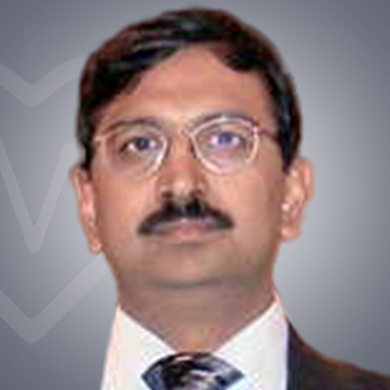
Laparoscopic & Bariatric Surgeon
Fortis Memorial Research Institute , Gurgaon, India20 Years of experience
Speaks: English
Listed below are some of the conditions that General Laparoscopic Surgeon Shashank Rastogi treats::
The General Laparoscopic Surgeon uses “minimally invasive” surgery to treat various digestive conditions. Most intestinal surgeries are performed using the laparoscopic technique. They include surgery for ulcerative colitis, cancer, Crohn’s disease, diverticulitis, rectal prolapse, and constipation.
In case your body shows any of the below-given symptoms, consult a General Laparoscopic Surgeon who will help diagnose the underlying conditions:
Abdominal problems may show other symptoms, which depend on the underlying disease or condition. Stomach problems are mostly related to the digestive system, but might also be linked to other body systems.
The working hours of General Laparoscopic Surgeon Shashank Rastogi are 11 am to 5 pm from Monday to Saturday. The doctor has an off on Sunday.
With several years of experience and deep knowledge, Dr Shashank Rastogi has successfully performed a wide range of surgeries. Some of the popular procedures performed by the specialists include:
Laparoscopic cholecystectomy is common these days. It is the surgical removal of the gallbladder through many small incisions and using a laparoscope. A laparoscope is a long camera that allows the doctor to have a view of the surgical area during gallbladder removal. Your doctor may opt for laparoscopic gallbladder surgery if a person develops gallstones or cholelithiasis that cause pain.

Share Your Experience about Dr. Shashank Rastogi

A General Laparoscopic Surgeon is a specialist who specializes in laparoscopic surgery to remove disease and repair injuries. They also perform various different tests and provide guidance for surgery. The doctors may be called on to perform surgery on any part of the body. The surgery is done through a minimally invasive procedure using a laparoscope. There are many other works that a General Laparoscopic Surgeon handles like monitoring general health problems that generally a general physician addresses. They also perform diagnostic tests to find out the underlying conditions. Some other conditions that a gynecologist can treat are Cholecystitis, Hernias, and Appendicitis.
A General Laparoscopic Surgeon performs the below-given tests to diagnose underlying conditions:
Always consult your doctor and let them know all your symptoms related to the abdomen. They may perform a few diagnostic tests so that the actual condition can be diagnosed. Post diagnosis the doctor determines the treatment plan that is best for you.
There are many reasons to see a general laparoscopic surgeon. Your primary doctor will evaluate your condition and will suggest you see a general laparoscopic surgeon if they find that the condition of the abdomen would need laparoscopic surgery. Below are some situations when you need to see a General Laparoscopic Surgeon: